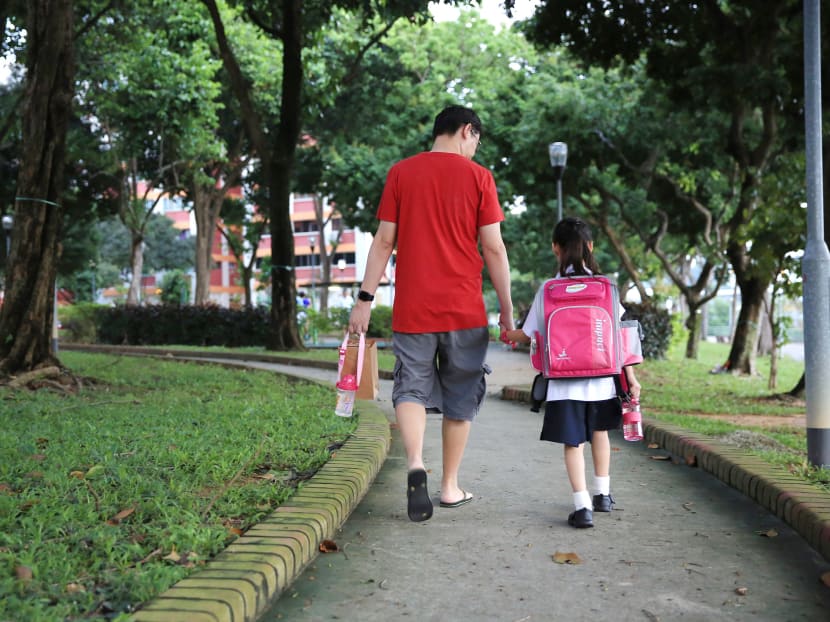Dealing with kids behaving badly
SINGAPORE — It’s par for the course for parents to get disapproving stares from strangers when children act up in public or do something that shows his lack of manners.

Parents should anticipate the possibility of kids misbehaving and prepare both themselves and their children for it. TODAY file photo
SINGAPORE — It’s par for the course for parents to get disapproving stares from strangers when children act up in public or do something that shows his lack of manners.
And, sometimes, this can even be caught on camera, as in the case of the schoolboy who showed his middle finger during the live broadcast of this year’s National Day parade. While parents should do their part to ensure that kids are well-behaved in public, it’s also essential that they recognise that "bad" behaviour is part and parcel of being a child.
“It’s common for children to misbehave sometimes,” said Kelvin Ang, a Families For Life council member. “They are, after all, young and inquisitive and they want to explore and discover new things. Parents need to recognise that it takes a lot of patience, time, and a conscious effort to guide children, and be there to instil positive values in their growing-up years.”
There are a number of reasons why kids act up in public, said Ang. It could stem from a lack of attention from parents, or be a way to demonstrate the child’s desire to gain independence, or simply because the child is hungry, tired, bored or feeling overwhelmed.
“For younger children, it’s usually a case of the child feeling uncomfortable but not knowing how to express or articulate himself properly, thus leading to frustration,” he added.
“There are also power struggles in disguise, where children want to test the boundaries and challenge their parents’ authority. This situation arises most often when the child wants his way but is unable to attain it.”
HIGHLIGHT GOOD BEHAVIOUR
Parents should, therefore, anticipate the possibility of kids misbehaving and prepare both themselves and their children for it.
“A good family practice is to plan in advance when heading out and explain to your child the expected behaviours ahead of time,” said Chong Hwee Min, an educational psychologist at the Department of Child Development, KK Women’s and Children’s Hospital.
“For younger children, you may also need to prepare activities to keep them occupied; and for older children, allow them to make reasonable decisions on how they can spend their time during family outings,” she said.
In order to instil good behaviour in children, Chong suggested that parents lead by example in how they relate to each other and the people around them. She also encouraged highlighting children’s good behaviour, even if it seems trivial to parents.
“Be specific; besides just saying ‘good job’ or ‘excellent’, state the behaviours you like, for example, ‘I like that you stay close to me’ or ‘That was great how you helped your grandfather move the furniture’,” she advised.
Ang said parents should have regular conversations with children. Be it over dinner, on the way to school or even through a simple text message. Daily conversations help parents to better communicate with children, sense their emotions and earn their trust.
Not only will children then open up to parents easily about their curiosity, fears and doubts, they also grow to be more receptive to their parents’ advice. He also suggested that children connect with extended family, as young children are highly impressionable and emulate the behaviour of adults they are close with.
“By spending time with the extended family on a regular basis, grandparents, aunts, uncles and older cousins can nurture a close relationship whereby the younger generation looks to them as role models and confidantes, at a later stage in their lives,” he explained.
KEEP CALM, TAKE CHARGE
Of course, children could pick up bad habits from other sources such as their friends. However, when parents consistently impart good family values, it goes a long way in providing guidance to children when they’re in school or in the community, said Chong.
But if a child still continues to display bad manners, she recommended that parents stay calm and take charge.
For instance, be careful not to shame your child by telling them they’re being naughty, as this can hurt them and have a negative impact on your parent-child relationship, Chong said. And if they end up doing anything embarrassing in public, such as using a swear word loudly or throwing a tantrum in the middle of the supermarket, don’t react by immediately reprimanding them.
“Your child looks up to you and needs you to be their wise guide,” said Chong. “If you feel angry, take a few deep breaths or bring your child to a less crowded area to calm down. Let them know you understand how they feel and why the behaviour is not acceptable.”
Ang, a father of three kids aged seven to 12, shared how he and his wife deal with such situations — first, remain calm and don’t get confrontational with your child.
Then, take your kids out of the environment to a quiet place, or head home as it allows them to calm down in a safe and familiar place.
Provide reassurance and guidance, encourage them to reflect on the situation, and take the opportunity to teach them the difference between right and wrong, and how to manage their emotions.
And, finally, comfort them with a big hug. “Sometimes, just feeling your arms around them will help to calm your child down, give them a sense of security, and let them know that you love and care about them,” he said.





